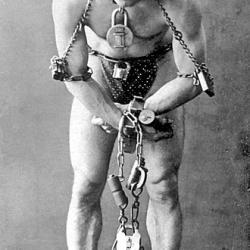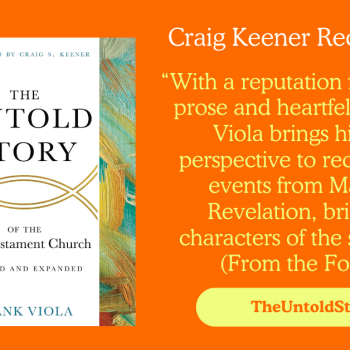Editors' Note: This article is part of a Public Square conversation on Interfaith Dialogue. Read other perspectives here.
"Oh good, I thought you were here to bomb us."
That was how Sunil, a young Muslim Republican was greeted as he reported for work on a political campaign. But since 9/11 that kind of reaction has been commonplace. A few violent extremists have been allowed to influence the public perception of Muslims in general. But the majority of Muslims in the West are friendly, gentle, hospitable people. They are looking for ways to dispel the stereotype, and appreciate the peace and freedom of living in a democracy as much as anyone else.
Actually some Muslims are afraid of Christians too, believing that they are only interested in aggressively trying to convert them. What some have termed "hit and run" evangelism doesn't help people who are already feeling alienated to feel loved and accepted.
We all tend to fear people who are different from us, and who we believe are going to be antagonistic or violent. Fear prevents us from showing love, or from really listening to others.
The title of this article isn't a typo. It is a truth that we see illustrated all around the world. There is a Bible verse that says the reverse, "perfect love casts out fear" (1 John 4:18). When we love someone, we are not afraid of them.
In a world full of misunderstanding and fear, we must learn new ways of simply coexisting as a society together. The first step is to acknowledge that it is okay for us to have differences. We really do live in a global village, and so it is vital that we learn to show each other true respect. Your children should grow up learning about Islam, Christianity, Judaism, and a myriad of other faiths. They can search the Internet and find information, some of which is accurate and some of it patently not. It is helpful for parents to learn more about other faiths in order to ensure that what their children read online is based on facts not prejudice.
In November 2013, I was privileged to attend a great example of the new form of interaction we need, the Global Faith Forum, which took place in Keller, Texas. This unique event included Muslims, Jews, and Christians. Attendees were encouraged to learn to simply build friendships with those of other faiths. Hardly a radical idea on one level, but one that many today are not practicing. Engaging with others who think differently and holding a genuine conversation with them is much harder than constructing a straw man and then promptly burning it.
It is also much more rewarding and interesting than the way the secular mafia wants us to interact, in an attempt to suppress religious dialogue as part of a goal to stamp out faith altogether and build a theocracy. We must not pretend that we all believe the same thing, but we have a responsibility to promote peace and understanding between people of faith.
Inter-faith used to be about seeking the lowest common denominator we could all agree on. There is a new model of engagement that some are calling "Multi-faith." This is about people coming together, respectfully acknowledging that we have real differences that cannot be easily reconciled.
We shouldn't have to compromise our respective faiths to be friends and work together for the common good. The challenge is how to demolish the stereotypes. It is really all about love. We must love our neighbor as ourselves. That means listening, and thinking carefully about how we come across to those outside our own tribe. Truth doesn't have to sound arrogant and hateful.
The hidden reality of inter-faith relationships is that listening to others who actually believe in their own faith does not offend the majority of people of other faiths. Muslims, Buddhists, Jews, Hindus, and Christians all want to be free to express their faith as fully functioning members of society, so why should we not want each other to do the same?
We need to build a public square that is respectful of people of all faiths. Faith represents the character, spirituality, and conscience of a society. It builds conviction. We should work together to improve the global and local communities in which we live. We can even form a common cause with those of different faiths to promote real religious freedom here in the West where it is gradually being eroded, and also in many countries in the East where it is still a distant dream.
Many of us approach sharing our faith by effectively communicating, "everything you believe is wrong and let me tell you why." Beginning where we agree can help with building understanding and friendship. One helpful topic for conversation between people of various faiths is what they think about Jesus. For a Jew, Jesus was a rabbi. To a Muslim he was one of their prophets, to a Christian he is the Son of God who died and rose again for us, and whom we worship today. There is a lot of potential to discuss him, starting from where we agree. For example his golden rule, "treat other people as you want to be treated" is attractive to most people and then we can respectfully move on to where we do disagree.




